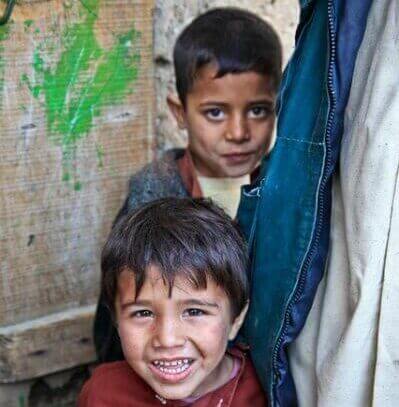Conditional cash transfer programs in Brazil, Mexico, and Ecuador have resulted in a significant reduction in child mortality, saving more than 700,000 lives, according to a study led by the Barcelona Institute for Global Health (ISGlobal). The study, published in JAMA Network Open, also suggests that expanding these programs could save an additional 150,000 lives by mitigating the impact of the current economic crisis.
Conditional cash transfer (CCT) programs are well-established policies aimed at alleviating poverty. These programs provide financial support to low-income families in exchange for meeting certain health and education requirements for their children. With 30 such programs currently implemented in Latin America, a region known for its high income and health inequalities, their impact across countries and during times of crisis has been uncertain.
Led by Davide Rasella of ISGlobal, an international team conducted a comprehensive evaluation of the health impact of these programs over the past two decades and projected their potential effects in future scenarios. The researchers analyzed data from 4,882 municipalities in Mexico, Brazil, and Ecuador, countries with significant CCT coverage through programs such as Progreso, Bolsa Familia, and Bono de Desarrollo Humano, respectively.
The retrospective analysis revealed that consolidated municipal CCT coverage between 2000 and 2019 was associated with a 24% reduction in overall child mortality, preventing approximately 739,919 child deaths in the three countries during the same period. The study found that higher CCT coverage led to a greater impact on child mortality and hospitalization, particularly for poverty-related diseases such as malnutrition, diarrhoea, tuberculosis, HIV/AIDS, respiratory infections, and malaria.
Daniella Medeiros, the first author of the study and a researcher from the Federal University of Bahia in Brazil, suggested that the positive effect of CCT programs on child mortality is mainly attributed to improved socioeconomic conditions, including better nutrition and housing, rather than the conditional nature of the income tied to the use of basic health services. This may explain why the impact was more prominent on postneonatal and under-five mortality, which are influenced by socioeconomic factors, compared to neonatal mortality, which is more influenced by healthcare services.
In response to economic crises, the study conducted forecast analyses considering different scenarios and responses related to CCT coverage. In a medium crisis scenario, expanding coverage to include those who have become newly impoverished (mitigation) could reduce child mortality by up to 17% and prevent 153,601 child deaths across the three countries by 2030. The findings indicate that rapidly expanding CCT programs during economic crises is an effective policy approach to mitigate the health impact and save the lives of children.
Rasella emphasized the significant role poverty plays in driving disease and mortality in low- and middle-income countries. By focusing on poverty as a determinant of health outcomes, multiple perspectives can be utilized to effectively address this issue.
The study provides crucial evidence of the positive impact of conditional cash transfer programs on child mortality and highlights their potential to mitigate the effects of economic crises. The findings support the expansion of these programs as a vital strategy for improving child health and well-being.
Reference: Medeiros-Cavalcanti D, Ordoñez JA, Aransiola T, et al. Evaluation and forecasting analysis of conditional cash transfer and child mortality in Latin America. JAMA Network Open. July 2023. Doi: 10.1001/jamanetworkopen.2023.23489


